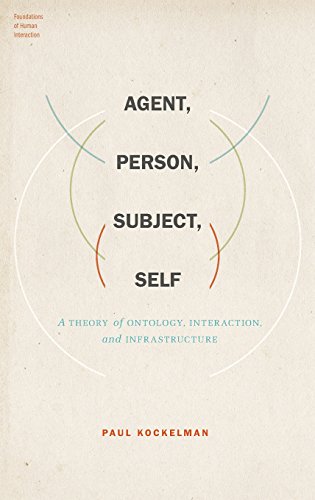(Ebook) Agent, Person, Subject, Self: A Theory of Ontology, Interaction, and Infrastructure by Paul Kockelman ISBN 9780199926985, 0199926980
This book offers both a naturalistic and critical theory of signs, minds, and meaning-in-the-world. It provides a reconstructive rather than deconstructive theory of the individual, one which both analytically separates and theoretically synthesizes a range of faculties that are often confused and conflated: agency (understood as a causal capacity), subjectivity (understood as a representational capacity), selfhood (understood as a reflexive capacity), and personhood (understood as a sociopolitical capacity attendant on being an agent, subject, or self). It argues that these facilities are best understood from a semiotic stance that supersedes the usual intentional stance. And, in so doing, it offers a pragmatism-grounded approach to meaning and mediation that is general enough to account for processes that are as embodied and embedded as they are articulated and enminded. In particular, while this theory is focused on human-specific modes of meaning, it also offers a general theory of meaning, such that the agents, subjects and selves in question need not always, or even usually, map onto persons. And while this theory foregrounds agents, persons, subjects and selves, it does this by theorizing processes that often remain in the background of such (often erroneously) individuated figures: ontologies (akin to culture, but generalized across agentive collectivities), interaction (not only between people, but also between people and things, and anything outside or in-between), and infrastructure (akin to context, but generalized to include mediation at any degree of remove).Paul Kockelman, Associate Professor of Anthropology, Barnard College and Columbia University.
*Free conversion of into popular formats such as PDF, DOCX, DOC, AZW, EPUB, and MOBI after payment.


